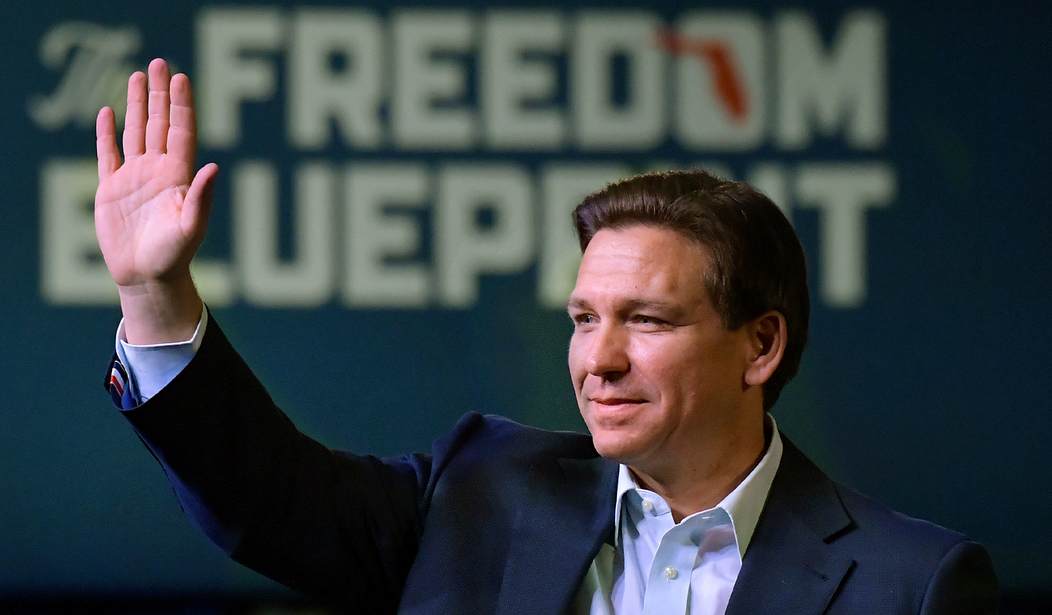Florida Gov. Ron DeSantis has run a cautious shadow presidential campaign — until now. The remarks on Ukraine that DeSantis gave Tucker Carlson — calling the war a “territorial dispute” — will no doubt play well with the Republican base. A Pew poll found “Republicans were divided, with 41% satisfied or wanting to send more military aid to Ukraine, and 40% preferring reduced military support,” according to Axios.
But the nation overall is supportive of giving aid to Ukraine, with 51% in favor while only 26% are opposed.
What the polls don’t show is nuances in the positions of both Democrats and Republicans and the nation as a whole. For example, there has been a three-fold increase in the number of Democrats who say the United States is supplying Ukraine with too much aid — 15% compared to just 5% last March. Overall, the share of Americans who think the U.S. is giving too much aid to Kyiv has shot up 19 points since the early days of the war.
But there is very little support in the country for ending the aid to Ukraine entirely. And that includes support in the Republican Party.
Exclusively for our VIPs: Ron DeSantis Is Dead Wrong About U.S. Support for Ukraine Not Being a ‘Vital Interest’
The GOP establishment sees the war in Ukraine as a grave threat to the world order. Even if it is, the fact is, about half of the Republican Party either disagrees or doesn’t care.
And that has created the most serious fault line in the Republican Party in more than a generation.
“DeSantis’s comments very much recall the Republican pre-World War Two tradition of so-called isolationism, which was really an indifference to European security,” said Dan Fried, a former top State Department official under President George W. Bush who is now with the Atlantic Council think tank in Washington.
That’s a political statement not bearing any relationship to DeSantis’s actual position on foreign policy. But using the “I” word to describe a Republican presidential candidate creates an automatic divide between the old guard GOP — the party of Reagan, Bush, and McCain — and the post-modern GOP.
Pollsters, analysts and campaign aides interviewed by Reuters said that DeSantis’ embrace of a more isolationist approach could open the way for more hawkish candidates to appeal to the significant chunk of the Republican electorate that still prefers a more hands-on U.S. foreign policy.
Several prospective candidates, including Haley, Pence and former Secretary of State Mike Pompeo have made their foreign policy experience a key part of their pitch to voters.
By embracing Trump’s hands-off brand of foreign policy, DeSantis risks turning off some of the white-collar Republicans that are most eager to move on from the former president.
DeSantis had little choice at this point in the campaign except to echo Trump’s take on Ukraine. He’s obviously not yet ready to take on the former president head-to-head. And when he does, he’ll have to maneuver through a foreign policy minefield in Ukraine and China and other global challenges so that he doesn’t get too far ahead of the Republican electorate.
While 46% of non-college educated Republicans said the United States should provide weapons to Ukraine, some 59% of those with a college degree said the U.S. should provide arms to Ukraine, according to a Reuters/Ipsos poll in February.
However, many will be voting for personalities rather than policies, pollsters said. That will give the eventual winner of the Republican nomination significant power to shape the party’s foreign policy preferences going forward.
“I think leadership matters a great deal on issues where voters can be a little unsure what they think about them,” said Sarah Longwell, a Republican strategist.
A close read of DeSantis’s full answer to Tucker Carlson’s questionnaire shows a thoughtful person wrestling with complex problems. But there’s no room in modern politics for thoughtfulness or thinking in general. And that’s a shame.










Join the conversation as a VIP Member